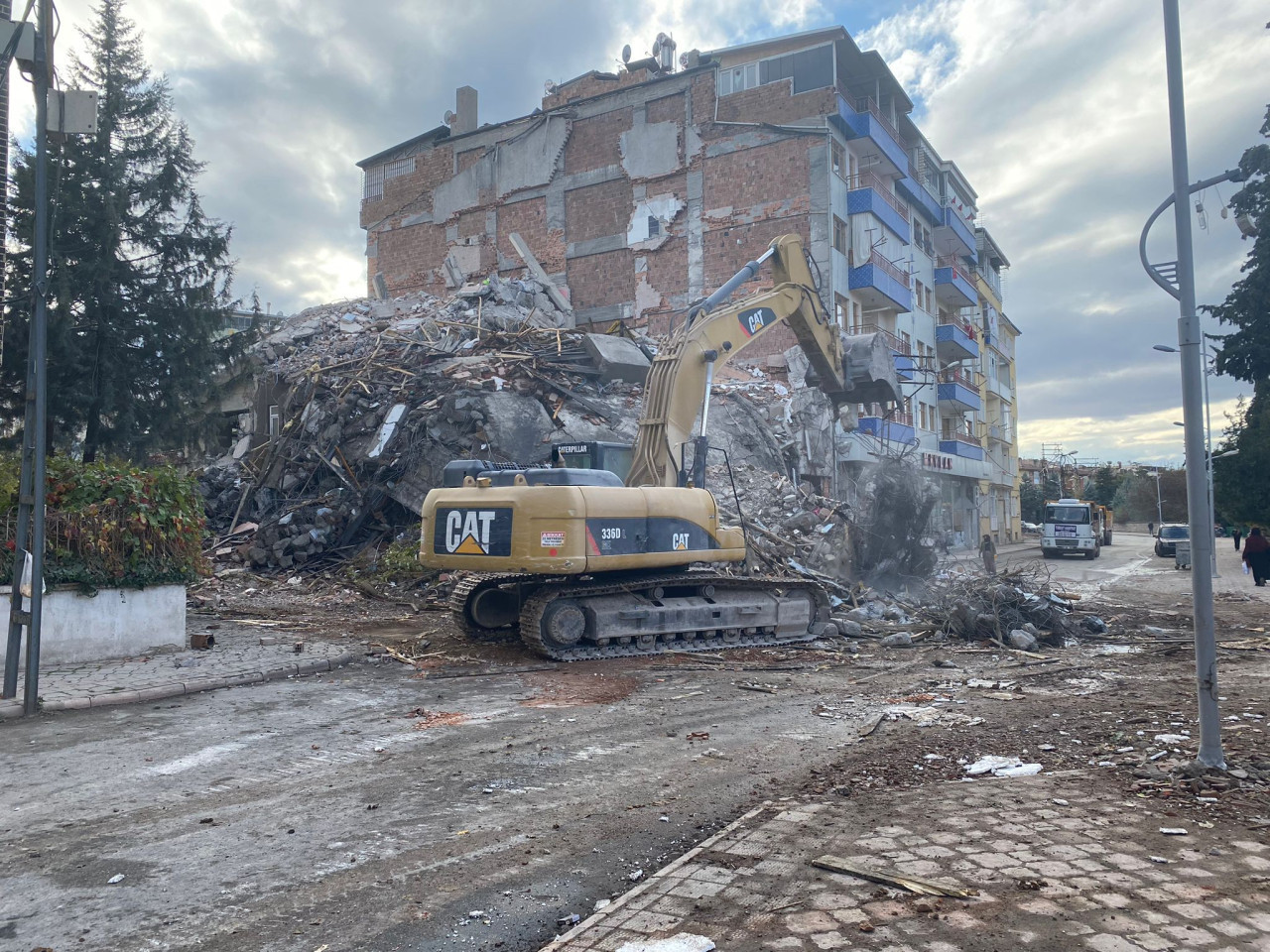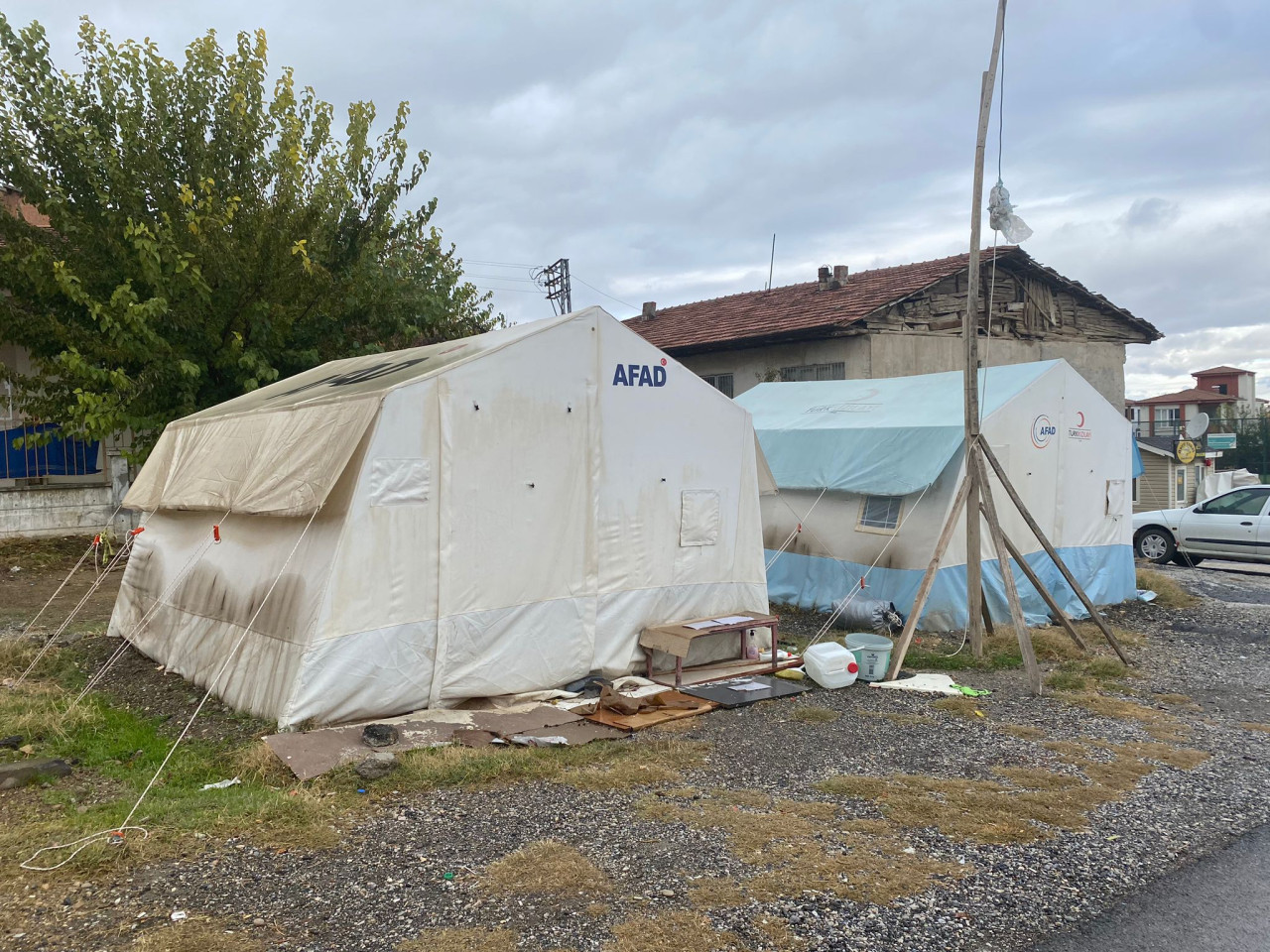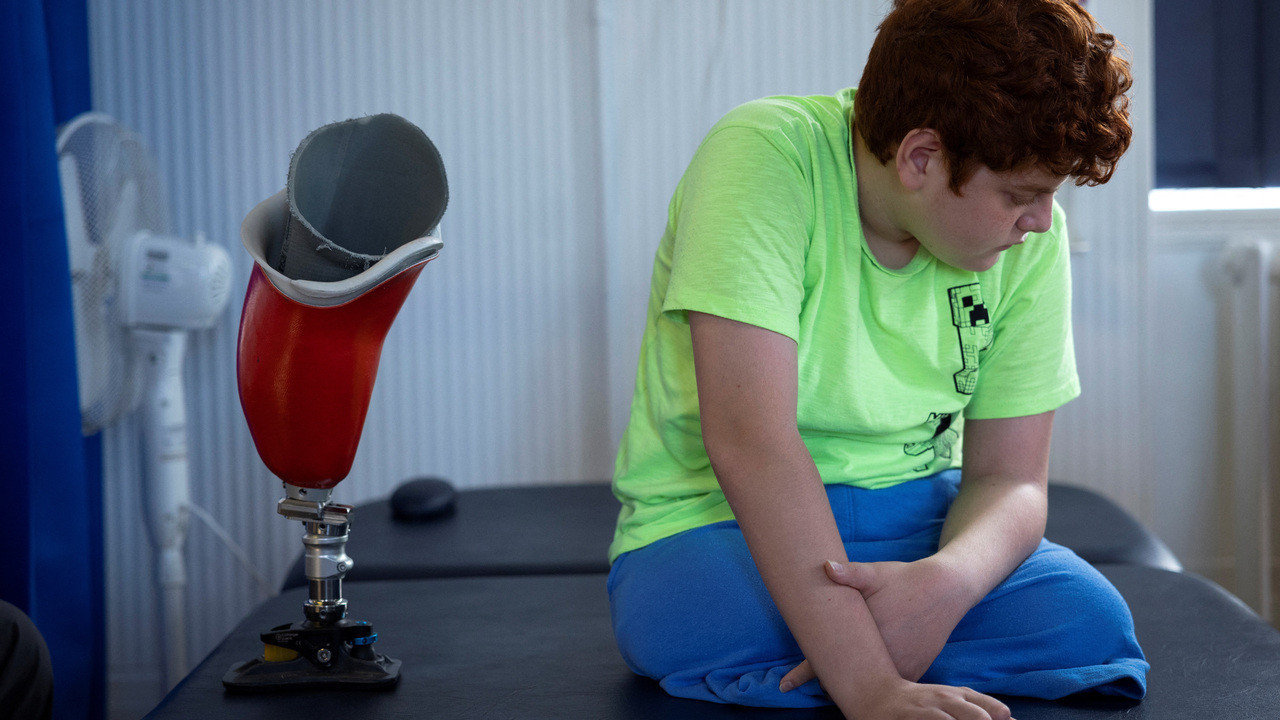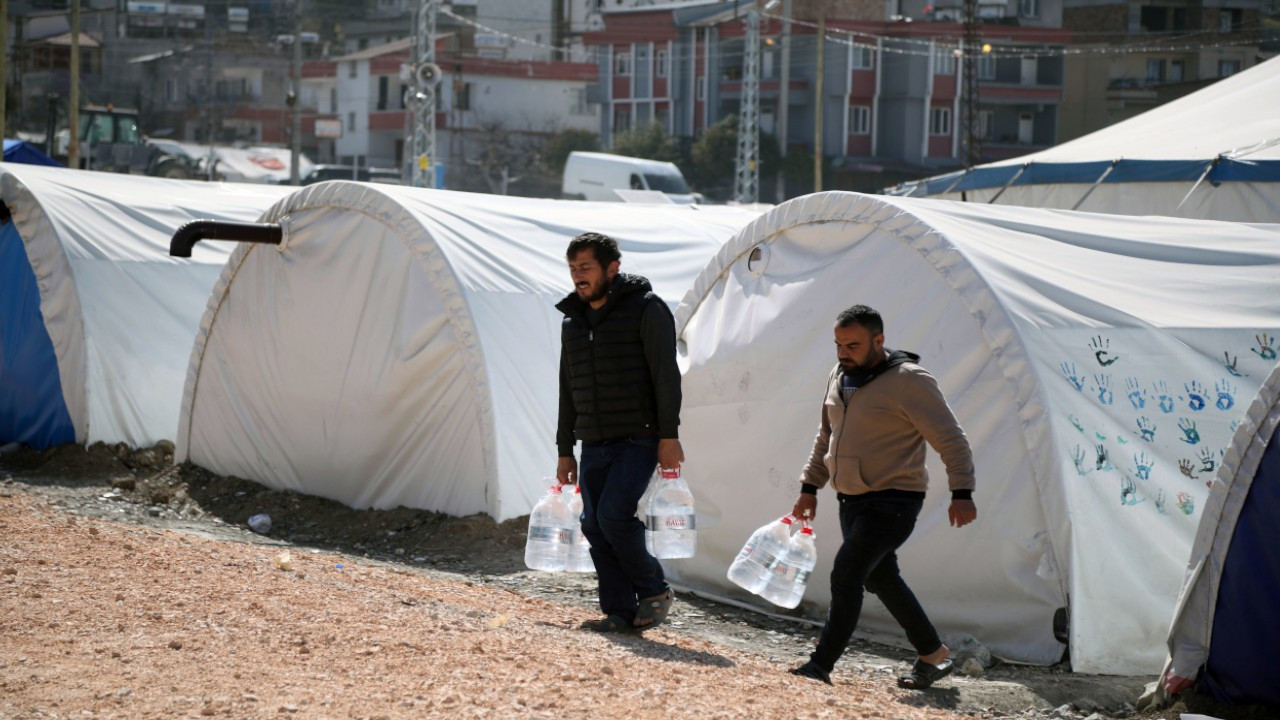Malatya mourns its dead on first anniversary of Feb. 6 earthquakes
Turkey’s Malatya province has mourned its 1,237 dead on the first anniversary of the Feb. 6 earthquakes in which around 5,000 buildings collapsed, and over 35,000 were heavily damaged. Many locals left the province after the destruction, and thousands still live in “temporary” housing units.
Didem Barut / Gazete Duvar
Turkey’s eastern Malatya province is mourning its dead on the anniversary of the 7.7 and 7.6-magnitude earthquakes of Feb. 6. Some 5,000 buildings collapsed in the province, killing 1237. Over 35,000 buildings are heavily damaged following the recent 5.2 magnitude earthquake of Jan. 25.
The controlled demolition of the damaged buildings continues. The Malatya Governor’s Office stated that 28,899 of the damaged buildings had been demolished at the one-year mark of the earthquakes.

Malatya’s 117,000 residents reside in temporary housing units set up in 74 container towns around the province. Harsh winter conditions make life difficult for the residents of tent and container towns. The earthquake victims did not want to recount the disaster and said that their grief multiplied with each passing day.

A heavy silence envelops Malatya City Cemetery. Zeynep Bertan, who lost six people from her family, said, “I lost my two nieces, their children, my sister… My everything. After February 6, life stopped for us too. We do not know which pain to cry about.”
“Most of these gravestones have the date February 6 on them. These are great agonies, and not even millennia would be enough to forget them,” she continued. Names of the dead are written on the Earthquake Memorial erected at the cemetery.

The province still suffers from a housing shortage. The earthquake housing project proposed by the Turkish Housing Authority (TOKİ) was postponed to an undisclosed date. TOKİ drew lots for the 5,140 residences on February 1, but did not clarify when they would be delivered to their owners.
Graffiti occupies the damaged buildings expecting demolition. Malatya residents write their feelings on piles of bricks.

Television correspondent Burak Altun has been on the field for the last year and traveled to every neighborhood of Malatya. He reproached the local administrators for hanging up election campaign banners upon damaged buildings and empty plots left by collapsed residences. “That image destroyed me. Human life cannot be this cheap. Our misery should not be forgotten this easily,” he said.
The reporter continued, “Many of our neighborhoods were wiped out, but politicians are preoccupied with their campaign success, they forgot about their citizens.” He maintained that politicians should take urgent action to revive Malatya and reilluminate its streets.
Over 500 attorney’s offices were destroyed or had to be evacuated after the earthquakes, including the Malatya Courthouse in the city center. The displaced attorneys were relocated to the Attorneys Container Town set up through a joint effort by the Union of Turkish Bar Associations and the Malatya Governor’s Office. Malatya Bar Association chair Onur Demez stated that the groundbreaking ceremony for the new courthouse would take place in the coming week.
Demez said, “One year has passed since the disaster, but we still work as hard as day one to dress our wounds.” He complained that the government took “careless” steps for the new courthouse without consulting the attorneys, judges, or citizens of the province.
The Bar Association chair drew attention to the grievances of his colleagues in the current crude arrangement of the courthouse. Legal operations were divided into seven separate buildings, with private offices of judges and prosecutors turned into courtrooms. The haphazard organization made it difficult for attorneys to operate and restricted people’s right to access justice, according to Demez.
“We are trying to work under difficult circumstances, and doing our best to help our fellow citizens,” the attorney concluded.
(English version by Ayşenaz Toptaş)


 Turkey's quake survivor boy relearns walking with prosthetic legsDomestic
Turkey's quake survivor boy relearns walking with prosthetic legsDomestic Turkish government delivers merely one-fifth of promised houses in earthquake zoneDomestic
Turkish government delivers merely one-fifth of promised houses in earthquake zoneDomestic Children in Turkey's quake region fail to thrive due to malnutrition, TTB reportsHealth
Children in Turkey's quake region fail to thrive due to malnutrition, TTB reportsHealth